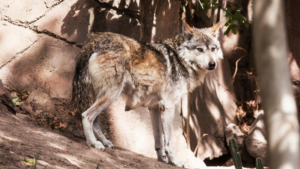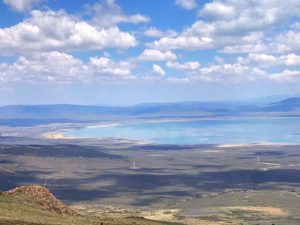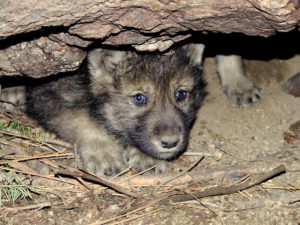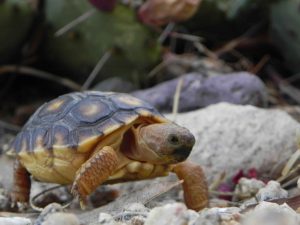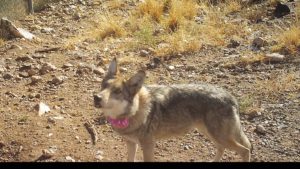Herald Journal: Opinion – Letter to the Editor
So, here in the Bear River Range, the most significant high-elevation wildlife corridor connecting the Greater Yellowstone Ecosystem and northern Rockies to the Uintas and southern Rockies, a wolf was killed for using that corridor. This wolf made it through the gauntlet of roads, noisy ATVs, dirt bikes, and other human actions that degrade wildlife habitat. Of course if it had made it to Utah, it’s fate would probably have been the same as we are no more enlightened than those in Idaho. A sad situation!
The wolf was “harassing” the sheep of a Forest Service permittee. This raises the question as to where were the guard dogs? Where was the herder? Obviously close enough to kill the wolf, but not close enough to chase it away. I suppose harassment of sheep means being in sight (rifle sight) of the herder.
Franklin Basin and other important basins and watersheds in the Bear River Range have suffered over a century of abuse and degradation from cattle and sheep, that today, graze at a fraction of the cost on private land. We, you and I as taxpayers, subsidize them to compete with private land livestock producers and to be there to destroy streams, springs and wetlands, native plant communities and displace fish and wildlife by destroying their habitat. These costs are not counted, but passed on to future generations. In Utah alone, livestock on public lands consume forage about equivalent to what would be needed to support 2,000,000 deer or 400,000 elk. Yet hunters, misled and blinded to the facts, claim wolves are decimating elk herds.
The value of fish and wildlife in Utah and Idaho is many times that of public lands livestock production, yet we allow this sacrifice of our fish and wildlife, our water supply, our forests and wetlands through our inaction.
Our watersheds are eroding at many times natural rates, losing water storage capacity because of the removal of ground covering vegetation by livestock, not to mention the massive amount of livestock waste deposited in our watersheds. My question is, when are people going to wake up and challenge the Forest Service to correct this disgrace by removing livestock from Franklin Basin and our public water supplies’ watersheds so they can heal and function to our benefit, not just a few livestock producers.
Dr. John Carter is Utah Director of WWP. He lives in Mendon, Utah.

